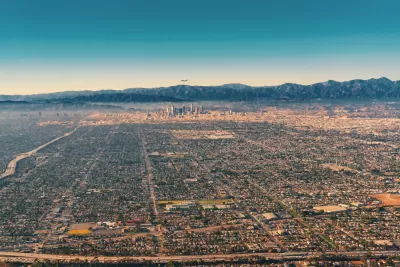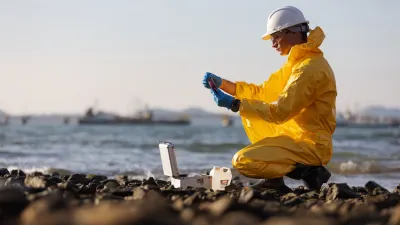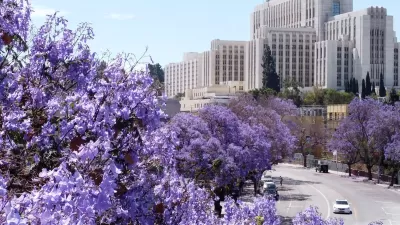Los Angeles County partners with The Tree Pledge and the Radical Resilience Lab to strategically plant trees where they are most needed.

Trees and urban forests offer a variety of environmental, social, and health benefits which are well-documented in numerous studies. Unfortunately, many underserved communities in Los Angeles County are tree-poor and park-poor, and therefore not able to enjoy such benefits. To address this issue, The Tree Pledge and the Radical Resilience Lab have just launched Good Shade, an urban reforestation tree-planting program developed in partnership with the Los Angeles County Department of Parks and Recreation (DPR), with funding from California ReLeaf and CALFIRE.
Good Shade was designed to address shade equity disparities in underserved areas of Los Angeles County and to generate multiple co-benefits through tree planting and education. Good Shade will improve the physical, emotional, social, and economic health and well-being of local residents, reduce heat islands, reduce stormwater runoff and increase connection with nature. Through Good Shade, the partners seek to plant hundreds of trees throughout the region in tree-poor communities, offer a multidisciplinary range of educational opportunities, and engage residents in supporting the new trees.
Good Shade's first project is the planting of 50 new trees by the Los Angeles Conservation Corps at Alondra Community Regional Park which is located in an area of high park need per the Los Angeles Countywide Parks Needs Assessment. The program is also starting an education campaign to raise awareness of the mental and physical health benefits associated with human connection with trees and nature.
FULL STORY: 'Good Shade' Comes to South Los Angeles With Tree Planting at Alondra Community Regional Park

Planetizen Federal Action Tracker
A weekly monitor of how Trump’s orders and actions are impacting planners and planning in America.

USGS Water Science Centers Targeted for Closure
If their work is suspended, states could lose a valuable resource for monitoring, understanding, and managing water resources.

Congress Moves to End Reconnecting Communities and Related Grants
The House Transportation and Infrastructure Committee moved to rescind funding for the Neighborhood Equity and Access program, which funds highway removals, freeway caps, transit projects, pedestrian infrastructure, and more.

Poor Conditions in Mobile Home Parks Put Residents at Risk
Failing infrastructure, poor water and air quality, and predatory owners endanger the health of manufactured home residents, many of whom are elderly and low-income.

How Complete Streets Stands to Lose in the FY26 ‘Skinny Budget’
The President’s proposed budget could cut key resources for active transportation, public transit, and road safety programs.

Dairy Queen and Rural Third Places
Dozens of Dairy Queen restaurants across Texas are closing, taking a critical community space with them.
Urban Design for Planners 1: Software Tools
This six-course series explores essential urban design concepts using open source software and equips planners with the tools they need to participate fully in the urban design process.
Planning for Universal Design
Learn the tools for implementing Universal Design in planning regulations.
City of Moorpark
City of Tustin
Tyler Technologies
City of Astoria
Transportation Research & Education Center (TREC) at Portland State University
Chaddick Institute at DePaul University
Regional Transportation Commission of Southern Nevada
Toledo-Lucas County Plan Commissions




























